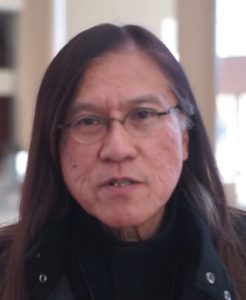
Roy Montibon worked with the New Mexico FAST program. Article by Jason Gibbs.
Heritage. Honesty. Respect for tradition.
These are keys to Roy Montibon’s work as CEO of Montibon Provenance International Inc. His mission to ensure the authenticity of Native American art has drawn support from New Mexico State University’s Arrowhead Center, the Small Business Administration, and the respect of collectors and artists alike.
In 2017, Montibon tapped into resources offered by the New Mexico Federal and State Technology Partnership (NM FAST) program to develop a system to prevent counterfeit merchandise from polluting the Native American art market. Shoddy knock-off merchandise not only devalues the market, but it devalues the work that honest artists produce and harms the overall market, he said.
“The financial impact is three-fold,” said Montibon. “Collectors are ripped off. Native artists are deprived of revenue from sales of work that is falsely attributed to them. And, because the fake work is of poor quality compared to authentic work, the perceived value of the artist’s work is diminished in the marketplace, which also has a detrimental effect on future generations who may be considering a career in the arts.”
The social impact is also three-fold, he added. “Individual artists and their families are being ripped off. Their culture is being stolen, impersonated, manipulated, counterfeited, faked. And, because the fake work is of poor quality compared to authentic work, the artist’s reputation is damaged, harming the careers of living artists.”
Often, Montibon says, artwork that is purported to be created by a specific Native American artist is produced in bulk overseas and stamped with a well-known artist’s hallmark. Then it is sold domestically at a reduced rate. Other abuses come in the form of artwork that is purchased in bulk from Native American artists at very low cost and sold at a great markup without crediting the artist.
While technically not illegal, Montibon likens it to piece-work paid to garment workers in third-world countries. In other industries, Montibon says, this would be considered false advertising and would fall under the purview of the Federal Trade Commission and other consumer protection and law enforcement agencies.
A Senate field hearing was held in Santa Fe by Sen. Tom Udall and Sen. Martin Heinrich in July of 2017 to gather input on modernizing the Indian Arts and Crafts Act. However, no updates resulted from the meeting and the act has not been updated since 2010.
Montibon’s approach to the provenance of Native American art has five components: object identification, secure documentation, anti-counterfeiting, cybersecurity, and long-term archiving. The cybersecurity element is currently in research and development, with the help of a Los Alamos National Laboratory mathematician whose assistance was made possible by the New Mexico Small Business Assistant program.
The continued support of NM FAST and the Arrowhead Center have been key to the development of the system to ensure the provenance of this uniquely New Mexico art form, Montibon said.
“The entire crew at Arrowhead Center NMSU are fabulous people,” he said. Dana, Del, Zetdi, Kramer, Lydia and the rest have been extremely helpful in assisting us with moving our pre-launch process forward. Zetdi, Del, Lydia, and Wayne have also been instrumental in helping me in building bridges between United World College-USA and NMSU.”
NMSU’s Arrowhead Center and the NM FAST program periodically accept applications for a new cohort of New Mexico businesses and tech start-ups. Read about who qualifies, and find out when the next cohort will form.
Finance New Mexico article 607 by Jason Gibbs
